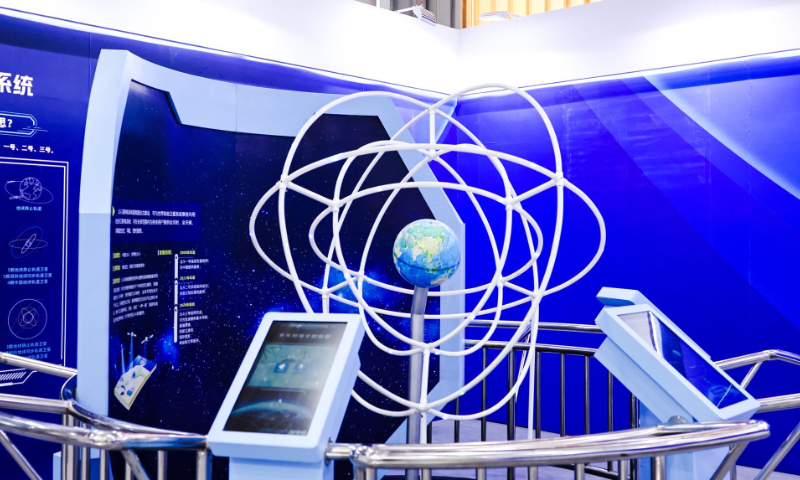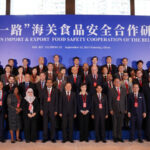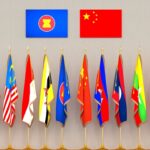China is set to mark its 20th National Day of Science Popularization starting from Saturday. At the Shougang Park in Beijing – the center stage of the national event – people can enjoy a hands-on experience with the country’s cutting-edge achievements, ranging from deep-space exploration to the C919 large passenger aircraft.
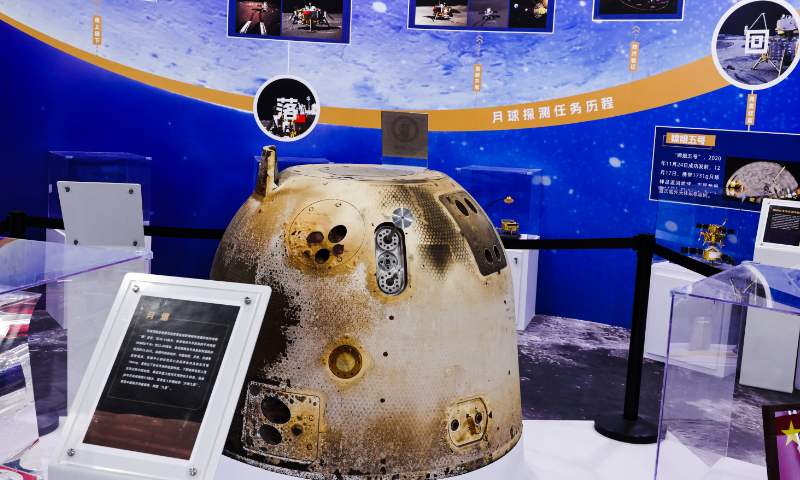
Photo: Deng Xiaoci/GT
During a pre-event tour on Friday, Global Times reporters found that the Chinese Lunar Exploration Program (CLEP) has put on quite a show, which includes the precious lunar sample retrieved by the Chang’e-5 moon probe, the original container for the sample and the return capsule of the probe.
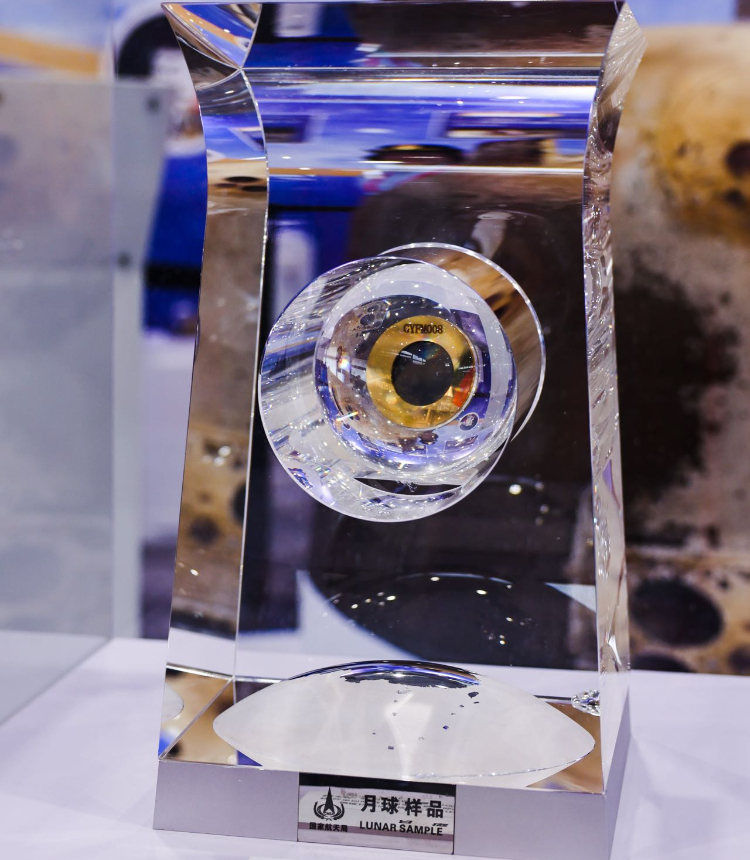
Photo: Deng Xiaoci/GT
A giant model of the Zhurong Mars rover will also be on display in the exhibition area.
A CLEP staffer told the Global Times that researchers from the deep space exploration lab will be on hand to answer questions from visitors at the event.
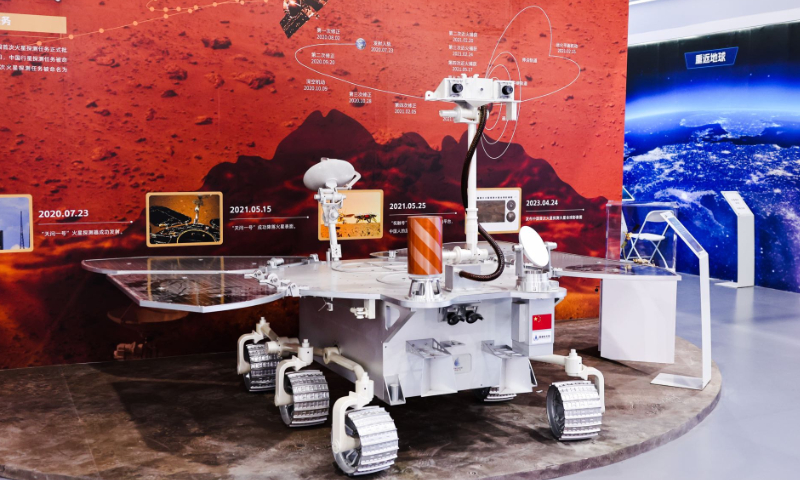
Photo: Deng Xiaoci/GT
Visitors will also be able to take a close look at the C919, China’s self-developed large passenger aircraft, in Shougang Park.
Organizers have set up a full-size model of a C919 cockpit with all the buttons and controls, and people will be able to sit in the pilot’s seat.
The special C919 cockpit is specially built for science popularization for the general public, and people can set up different weather condition and vision effects to mimic the situations faced by real pilots, a staffer told the Global Times.
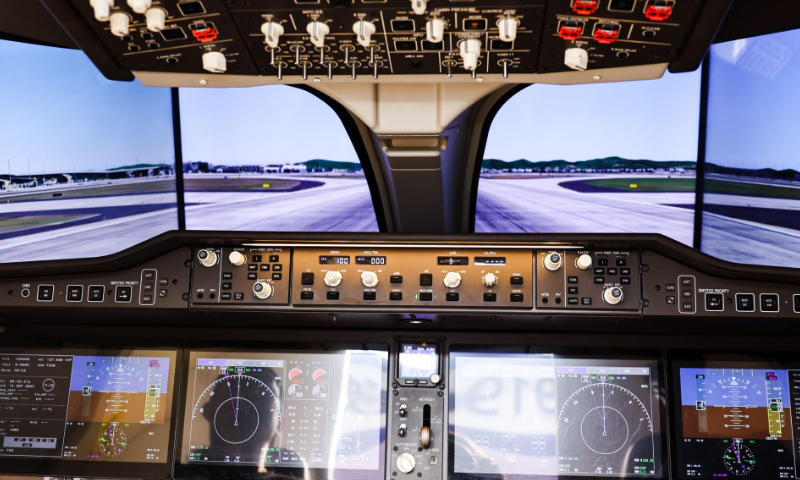
Photo: Deng Xiaoci/GT
For the first time at the country’s National Day of Science Popularization center stage event, there will be a special section dedicated to showcasing technology for tackling internet fraud and theft of personal data, the Global Times has learned.
A guide in the cyberspace security section told the Global Times that by interacting with the exhibition projects, people can learn and understand how their personal data including their name, phone number and facial information can be collected in different daily-life situations such as picking-up deliveries from online shopping or accessing free Wi-Fi.
People can also learn how the Chinese police authorities and cybersecurity firms join forces to trace online fraud and safeguard the general public, the guide noted.
A cybersecurity network codenamed Tianqiong, which was developed by Hangzhou-based firm DAS-Security, will be used to provide round-the-clock, closed-loop security services for the upcoming Hangzhou Asian Games.
According to DAS-Security, large-scale international sports events are often prone to cyberattacks and have become a battlefield to test cyberspace defenses. For instance, criminals have previously tried to steal athletes’ and officials’ personal information to turn sports events into political events or to seek financial gains.
The Tianqiong security system covers six host cities including Hangzhou, Jinhua, and Ningbo and 87 Asian Games venues. It utilizes a new generation, large-scale model-based big data processing engine, capable of processing huge amounts of data in seconds, enabling rapid response and greatly easing the workload for analysts. “Compared to traditional heavy cybersecurity measures, it achieves significant cost savings,” a staffer at the firm explained on Friday.
Since 2004, there have been 19 National Science Popularization Days, and they are among the most significant science popularization activities in the country.
This year’s theme is “Enhancing the Scientific Literacy of the Whole Nation and Promoting Self-reliance and Self-strengthening in Science and Technology,” according to the main organizer of the event, the China Association for Science and Technology (CAST).
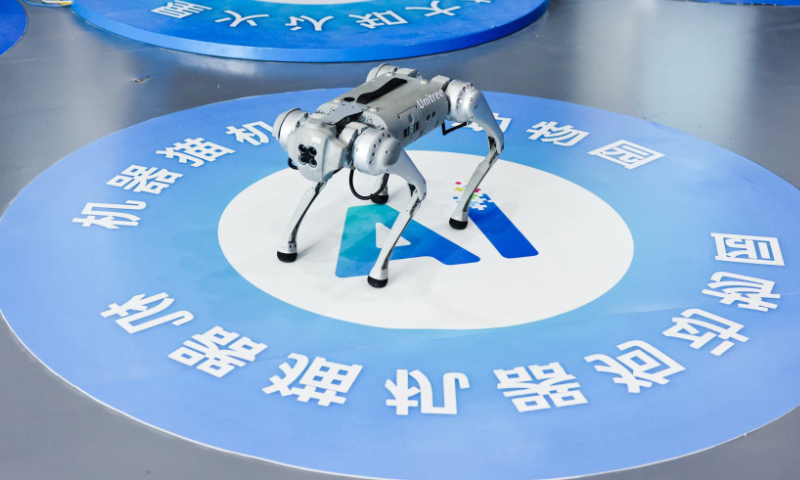
Photo: Deng Xiaoci/GT
According to CAST, approximately 320 million people participated in about 74,000 online and offline National Science Popularization Day activities across the country in 2022, despite the pandemic’s impact. The number of events and attendees for this year are expected to increase significantly.
The 2023 Beijing International Science Communication Exchange Week will run from September 16 to 24, coinciding with the National Science Popularization Day celebration. In addition to domestic representatives, a delegation of 27 guests from 24 international organizations and institutions from 22 countries and regions will attend the conference. They represent the scientific and technological community, science communication field, and science education field.

